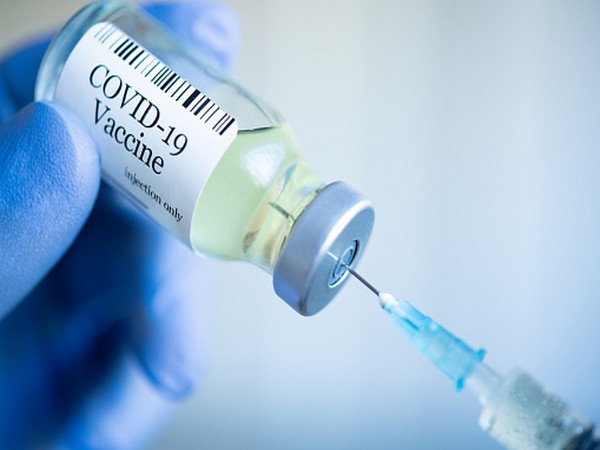COVID-19 vaccination associated with fewer asymptomatic SARS-CoV-2 infections: Study
Vaccination dramatically reduced COVID-19 symptomatic and asymptomatic infections in St. Jude Children's Research Hospital employees compared with their unvaccinated peers, according to a research letter.

- Country:
- United States
Vaccination dramatically reduced COVID-19 symptomatic and asymptomatic infections in St. Jude Children's Research Hospital employees compared with their unvaccinated peers, according to a research letter. The research letter appears in the Journal of the American Medical Association.
The study is among the first to show an association between COVID-19 vaccination and fewer asymptomatic infections. When the Pfizer-BioNTech BNT162b2 vaccine was authorized for use in the US, the vaccine was reported to be highly effective at preventing laboratory-confirmed COVID-19. Clinical trial data suggested that the two-dose regimen reduced symptomatic disease, including hospitalization and death. But an association with reduced asymptomatic infection was unclear. "While further research is needed, by preventing infections, including in people who have no symptoms, there is a high possibility that vaccination will decrease transmission of SARS-CoV-2," said Diego Hijano, M.D., of the St. Jude Department of Infectious Diseases. He and Li Tang, Ph.D., of St. Jude Biostatistics, are the first authors of the report. Tang is also the corresponding author.
The study involved 5,217 St. Jude employees who were eligible under Tennessee state guidelines for vaccination between Dec. 17, 2020, and March 20, 2021. More than 58 per cent of employees were vaccinated during that period. Most workers received both doses. Overall, vaccination reduced the risk of asymptomatic and symptomatic SARS-CoV-2 infection by 79% in vaccinated employees compared with their unvaccinated colleagues. An analysis of asymptomatic infections alone found vaccination reduced the risk by 72%.
Protection was even greater for employees who completed two doses. A week or more after receiving the second dose, vaccinated employees were 96% less likely than unvaccinated workers to become infected with SARS-CoV-2. When researchers looked just at asymptomatic infections, vaccination reduced the risk by 90%. Finding SARS-CoV-2 infections
The research stems from a programme that St. Jude leaders began in March 2020 to protect patients and employees from the pandemic virus. The effort included targeted testing for employees with COVID-19 symptoms or known exposure to the pandemic virus. The plan also involved routine, laboratory testing of asymptomatic employees. Nasal swabs were collected at least weekly from self-reported asymptomatic on-campus workers to perform polymerase chain reaction to detect asymptomatic SARS-CoV-2 infection.
"This study was possible because St. Jude invested in resources to determine how best to control the disease and protect our patients and employees," Tang said. "Few places then or now provide such broad asymptomatic testing." Hijano said, "Testing has been invaluable to the institutional COVID-19 mitigation plan. In the end, the testing also serves as a unique tool that helps to fill in critical knowledge gaps."
Results by the numbers During the study, 236 of the 5,217 employees included in the analysis tested positive for SARS-CoV-2. They included 185 unvaccinated employees and 51 of the 3,052 workers who had received at least one dose of the vaccine.
Almost half of the positive cases, 108, reported no symptoms upon testing. The asymptomatic cases included 20 employees who had received one vaccine dose and three who tested positive within seven days of the second dose. "The results are a reminder of the many hidden cases in the population, which makes containing the virus a big challenge," Tang said. The study group included a cross-section of employees in regard to race and gender. More than 80 per cent of employees were younger than 65 years old. The vaccinated group included a higher percentage of health care staff, 47 per cent than the unvaccinated employees 25.7 per cent. (ANI)
(This story has not been edited by Devdiscourse staff and is auto-generated from a syndicated feed.)
- READ MORE ON:
- Tennessee
- Journal of American Medical Association
- Ph.D.
- Tang
- M.D.
ALSO READ
Health News Roundup: U.S. FDA approves expanded use of J&J's cancer cell therapy; Tennessee court weighs blocking abortion ban during pregnancy complications and more
Tennessee court weighs blocking abortion ban during pregnancy complications
Tennessee Lawmakers Propose Legislation Requiring Parental Consent for Children to Join Social Media Platforms
Tennessee Senate passes bill allowing teachers to carry guns in schools following tragic Nashville shooting.
''Scuba Divers Dive into Voter Awareness Campaign in Tennessee's Waters''










